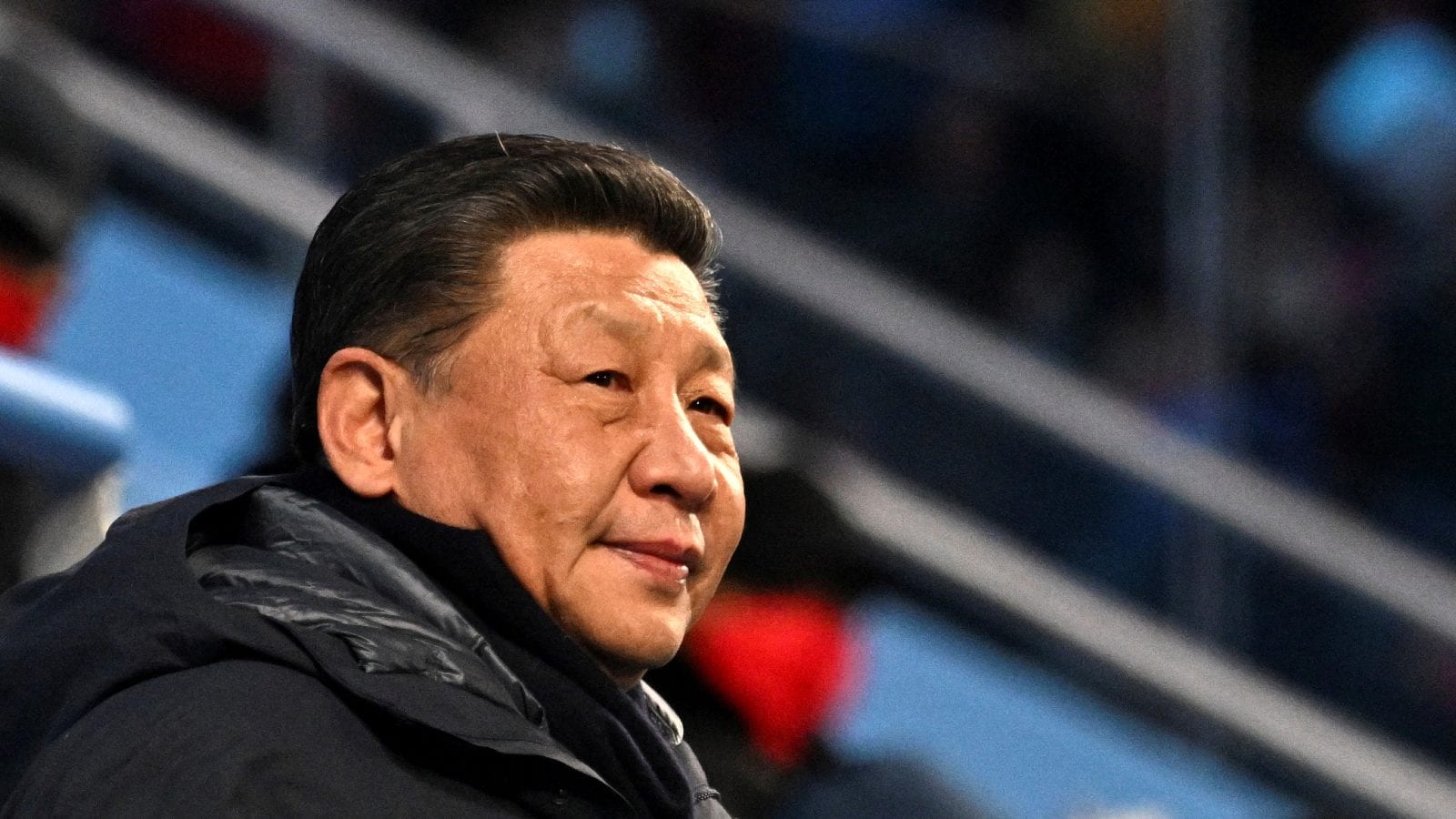No Need for Patronising Lectures, Xi Tells UNHRC Chief as She Heads to Xinjiang to Probe Uygurs Rights Violations
Chinese President Xi Jinping on Wednesday told visiting UNHRC chief Michelle Bachelet that no one can claim perfection in human rights protection and there is no need for patronising lectures, as he downplayed the allegations of massive human rights violations against Uygur Muslims and their mass incarcerations in the volatile Xinjiang province.
Bachelet, the UN High Commissioner for Human Rights, arrived in Guangzhou on Monday after a long drawn out negotiation process with Beijing to probe the allegations of the internment of over a million Uygur Muslims of different ages as part of its crackdown on Islamic militants.
China alleges that the East Turkistan Islamic Movement (ETIM), allegedly linked to radical outfits like al-Qaeda and Islamic State, fomented a separatist insurgency in Muslim-majority Xinjiang province, bordering Pakistan-occupied Kashmir, Afghanistan and several Central Asian countries. Beijing terms the mass camps as re-education centres to impart skill education.
China has also been accused of carrying out a campaign of “sinicisation” of Islam which broadly meant bringing it in tune with the policies of the ruling Communist Party. In his meeting with Bachelet through a video link on Wednesday, President Xi elaborated on major issues related to the development of China’s human rights cause and made it clear that the Communist Party of China (CPC) and the Chinese government are committed to the comprehensive protection and safeguarding of human rights.
Xi pointed out that in terms of human rights protection, no one can claim perfection and there is always room for improvement, an official press release here said. “When it comes to human rights issues, there is no such thing as a flawless utopia; countries do not need patronising lecturers; still less should human rights issues be politicised and used as a tool to apply double standards, or as a pretext to interfere in the internal affairs of other countries,” he said in an apparent reference to the US and EU countries terming China’s crackdown in Xinjiang as “genocide”.
Earlier, Foreign Minister Wang Yi met Bachelet in the southern city of Guangzhou and briefed her on China’s stance. In February, UN Secretary-General Antonio Guterres met with Xi and expressed his expectation that the Chinese authorities will allow for a credible visit of the UN High Commissioner to China, including Xinjiang.
Ahead of Bachelet’s visit, the Chinese Foreign Ministry said the purpose of the visit was to promote exchange and cooperation, not investigation based on the presumption of guilt. We oppose anyone to use this for political manipulation to pressure China”. Coinciding with Bachelet’s visit, the BBC has released a “huge cache of data” hacked from Chinese police computer servers in Xinjiang showing thousands of photographs of incarcerated Uygurs from the heart of China’s highly secretive system as well as a shoot-to-kill policy for those who try to escape.
The Xinjiang Police Files were passed to the BBC earlier this year. After a months-long effort to investigate and authenticate them, they can be shown to offer significant new insights into the internment of the region’s Uyghurs and other Turkic minorities, the broadcaster said. BBC report said Bachelet visit is controversial as the critics were concerned that her itinerary will be under the tight control of the government.
Chinese Foreign Ministry spokesman Wang Wenbin has dismissed the BBC report as the latest example of the anti-China forces’ campaign to smear Xinjiang. “It is just the same trick they used to play before. The lies and rumours they spread cannot deceive the world, nor can they hide the fact that Xinjiang enjoys peace and stability, its economy is thriving and its people live and work in peace and contentment,” Wang Wenbin told the media here on Tuesday.
He said Bachelet will visit Guangdong and Xinjiang, where she will have broad exchanges with people from various sectors. Her office so far has not released any details and her programme was kept under wraps. There are apprehensions that by laying a red carpet welcome to Bachelet, excluding her from the rigid COVID quarantine rule, China would try to get a clean chit as in the case of the WHO inquiry team to probe the origin of the coronavirus in Wuhan last year.
The inquiry turned out to be a damp squib as it failed to identify the source of the virus, saying it is unlikely to have been leaked from the bio-lab in Wuhan. Ahead of Bachelet’s six-day visit, US State Department spokesman Ned Price expressed concern warning that restrictions by Beijing could make a thorough investigation into alleged rights abuses there impossible.
“We’re deeply concerned about the upcoming visit,” Price had said. “We have no expectation that the (China) will grant the necessary access required to conduct a complete, unmanipulated assessment of the human rights environment in Xinjiang,” Price said. “The high commissioner, we believe, must act, and be allowed to act, independently. And the high commissioner must report objectively and factually on the human rights situation.” The UN earlier said that it has identified patterns of arbitrary detention, coerced labour and broader infringements on civil liberties in Xinjiang.
Earlier this month, a coalition of more than 220 rights groups appealed to Bachelet’s office to postpone her visit, citing the risk of “walking into a propaganda minefield laid out by the Chinese Communist Party”. Those campaigners also accused Bachelet of failing to meet any members of the Uygur community or related civil society groups during her time in office despite multiple requests, Hong Kong-based South China Morning Post reported.
Read all the Latest News , Breaking News and IPL 2022 Live Updates here.
For all the latest world News Click Here

